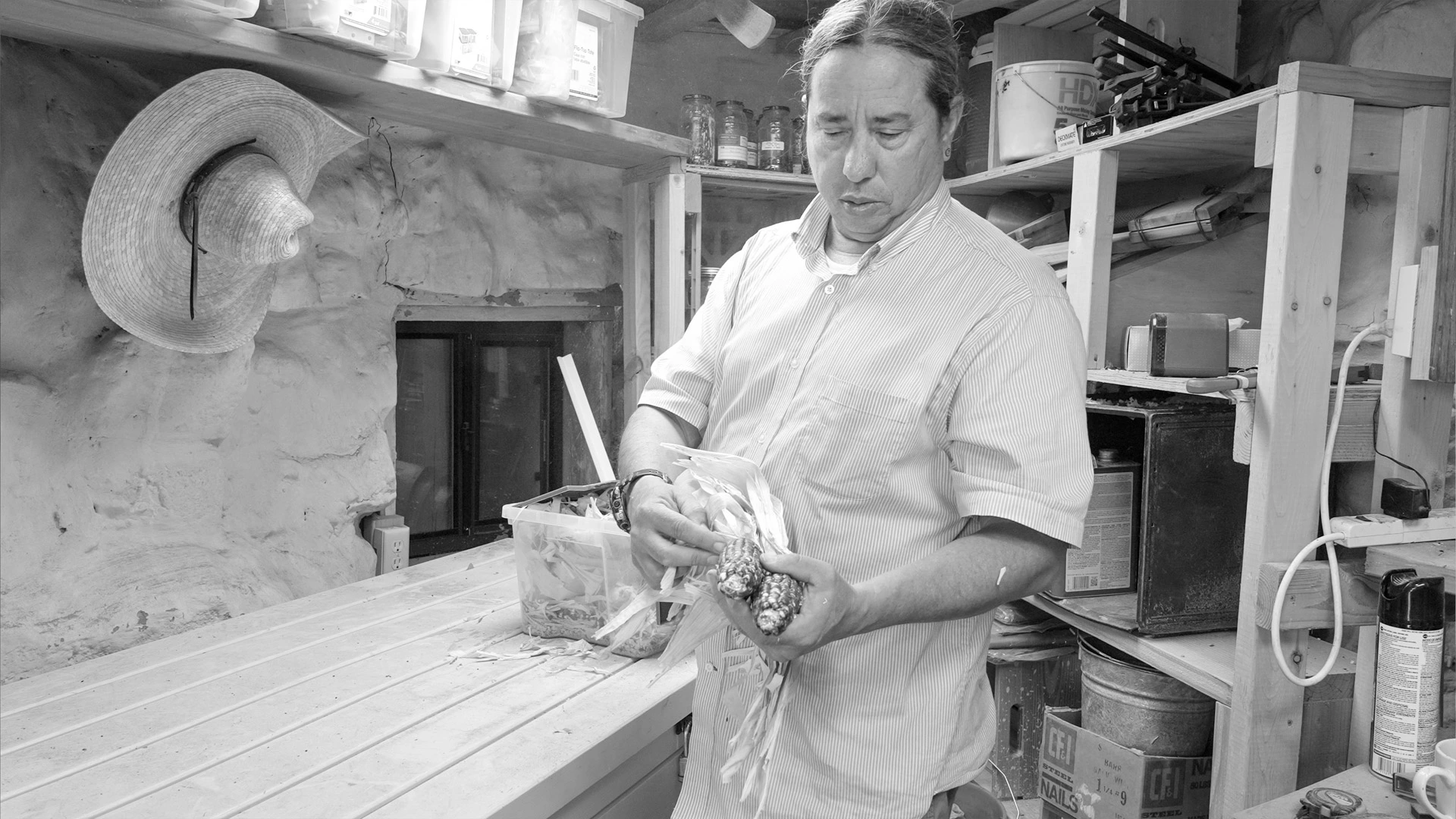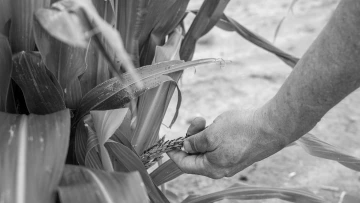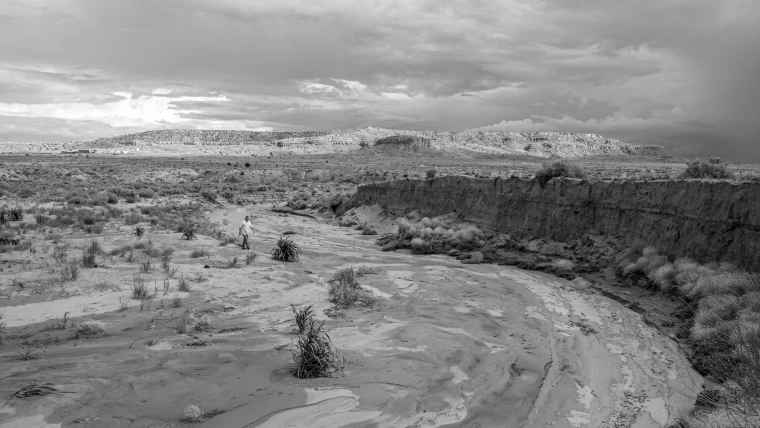Planting Seeds
The Indigenous Resilience Center Looks To Tribes to Guide its Next Moves.

Michael Kotutwa Johnson is an expert in dry farming.
Farmers throughout the Northwest call on Michael Kotutwa Johnson ’19 for his expertise in “dry” farming — a method of agriculture he’s practiced for decades. The farmers are confronting increasingly scarce water sources. Their rivers are not as full as they once were, and urban growth encroaches on supplies that previously served their lands. They irrigate less or depend largely on rainfall.

Dry farming is designed to conserve moisture.
Arlene Islas
When Johnson consults with the farmers, he learns that many work in areas receiving 15 to 30 inches of rain each year.
The dry farming Johnson knows is different: His crops receive only 6 to 10 inches of annual precipitation, in an area without natural water sources.
For 20 years, his farming practices have included planting seeds much deeper than conventional farms and grouping crops closer together.
These Indigenous farming methods, designed to conserve moisture, have been practiced by Johnson’s family for centuries.
Johnson, a member of the Hopi Tribe of northern Arizona, is an assistant specialist at the University of Arizona’s School of Natural Resources and the Environment in the College of Agriculture and Life Sciences (CALS). His farming experience includes raising corn, beans and melons on Native lands near Kykotsmovi Village on the Hopi reservation.
“That, to me, is the heart of who I am as a Hopi — it’s practicing that farming,” Johnson said one evening at his house, which he built by hand out of sandstone. A light drizzle — a small contribution to the year’s 6 to 10 inches of rain — dampened his crops outside.
Johnson also is part of the UArizona Indigenous Resilience Center, established in September 2021. The center’s growing team of Indigenous scientists focuses on helping Native American tribes manage climate challenges.
Johnson says he would like Indigenous voices to be heard as part of the conversation about climate solutions.
“We have over 3,000 years in this particular place, and a lot of tribes have even longer in their different areas. But nobody asks them, ‘What are we going to do about the environment?’” Johnson says. “I think that’s kind of sad, because there’s so much knowledge that we still have.”
Sustaining Tribal Partnerships
The Indigenous Resilience Center, known as IRes, has been in “turbo mode” since it was founded, says Director Karletta Chief ’07, a Diné hydrologist and a University Distinguished Outreach Professor of environmental science at CALS.
IRes complements other campus Indigenous people’s programs. “But there’s nothing like the Indigenous Resilience Center, where we focus on environmental solutions, designed with tribes, that are Indigenous-led. That’s what makes us unique,” Chief says.
In its first year, IRes worked with tribal leaders to pair university resources and research with tribal knowledge and practices used for millennia to manage lands and ways of life, Chief says. The center’s ongoing dialogue with tribes has included leadership meetings and summits with Native American communities to understand their needs.
Ned Norris Jr. ’09, chairman of the Tohono O’odham Nation, asked simply for honesty and transparency about the center’s intentions and goals, Chief says.
“I told him that the Indigenous Resilience Center is a seed right now. We want tribal leaders and tribal nations to water that seed, nurture it and help it to grow into a plant that they desire to cultivate and harvest,” she says.
The goal, she adds, is to help Indigenous communities thrive and adapt to environmental and societal challenges. “We want to be a good relative to Indigenous peoples,” Chief says, by providing them with access to science and research as well as to faculty and Indigenous students who want to learn and work with tribes.

Michael Kotutwa Johnson on the Hopi reservation in northeastern Arizona
Arlene Islas
Funding for Environmental and Social Justice
IRes is funded in part by the university’s Agnese Nelms Haury Program in Environment and Social Justice. Both are part of the Arizona Institute for Resilient Environments and Societies, or AIRES.
Faculty and staff will collaborate — through AIRES’s Indigenous Food, Energy & Water Security and Sovereignty graduate program, also known as Indige-FEWSS — to develop the next generation of scientists and engineers working to address Indigenous challenges related to food, energy and water.
Chief says that the IRes initiatives are an opportunity to sustain Indige-FEWSS programs as well as to identify gaps and offer faculty expertise needed by Indigenous communities.
Funded by a National Science Foundation grant, Indige-FEWSS partners with Diné communities and organizations on the Navajo Nation. Graduate students in the program implement hands-on research projects that bring solar-powered water filtration systems and electricity to Diné homes.
Through the program, students build an understanding of Indigenous culture and governance while helping to address a long-standing challenge — that approximately 30% of Navajo Nation homes are not connected to central power or potable water.
“At AIRES, we work collaboratively to help communities adapt to changing environments,” says institute director Sharon Collinge. “IRes beautifully expresses our priorities through its partnerships with Indigenous knowledge holders, leaders and tribal organizations to enhance Indigenous resilience.”
